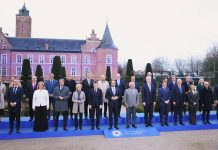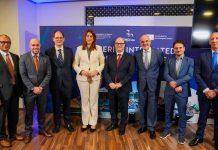The Deputy Prime Minister and Minister for Foreign Affairs and Tourism addressed the MHRA BOV Deloitte Q3 2025 Hospitality Performance Presentation, emphasising that Malta’s tourism sector has reached a decisive moment where long-discussed reforms must finally be implemented, with the full support and participation of industry partners.
He welcomed the sector’s strong performance, including an 11.7% rise in arrivals from Q1 to Q3 and a 16.1% increase in total tourism expenditure. He also highlighted the success of Malta’s seasonality strategy, which continues to deliver stronger off-peak growth compared to the traditional summer period. “According to today’s published report, Malta’s tourism sector continues to perform strongly. These figures give us confidence and confirm that our efforts to spread tourism throughout the year while continouing to increase revenue and quality are working” said Dr Borg.
MHRA President Tony Zahra echoed this sentiment, noting that the positive results continue to build on past successes while the industry remains very optimistic. “The third quarter was exceptional, all figures indicated a series of high and impressive activity. We are also seeing a promising quarter 4 and this year we might even exceed the 4 million tourists who choose our islands.”
Deputy Prime Minister Borg also stressed that this is the moment for decisive action. “We have reached a moment where we must address our challenges directly and constructively. The decisions ahead will require collective courage and unity and those who truly have this sector at heart understand how important it is that we move forward together.”
Dr Borg noted that bold decisions have historically moved tourism forward, citing the ongoing rehabilitation of Blue Lagoon as a clear example. He outlined the government’s reform agenda, including strengthening skills through the Skills Pass and Tourism Excellence Malta; expanding eco-certification frameworks such as Green Key, EU Ecolabel, and GSTC; and using enhanced data tools, including the Tourism Sustainability Indicators and the AI in Tourism Platform to inform policy and measure impacts on residents, the environment, and the economy
One of the most significant reforms currently underway is the proposed new accommodation framework, now open for public consultation. The framework introduces clearer limits on growth, balanced development rules, and greater transparency for both traditional and short-let properties. Dr Borg added that this, together with the pilot project in Swieqi and Valletta, will be crucial for the future of the industry. He also addressed workforce pressures, cautioning that proposals such as a four-day week must be evaluated realistically, as measures that add strain to an already stretched workforce risk weakening a sector of such importance.
The Deputy Prime Minister concluded with a call for unity and thanked MHRA and all industry stakeholders for their collaboration and professionalism: “I want to take this moment to sincerely thank the MHRA and all our industry stakeholders for your active participation in the ongoing consultations, and for the support you have shown for the reforms announced. Your willingness to embrace change, and to take bold decisions when needed, reflects a shared understanding that our sector’s future cannot rest on short-term considerations”.
Photo: MFT
![]()








